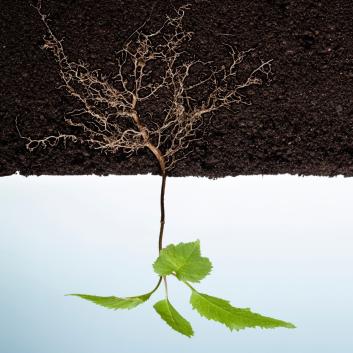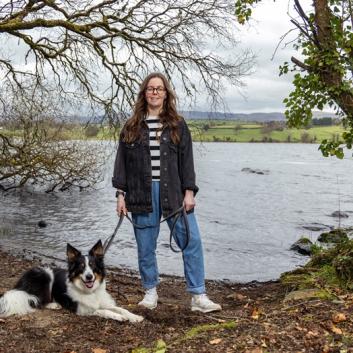Young trailblazer innovators awarded for bold sustainability ideas by UNEP
The Young Champions of the Earth prize is awarded every year to seven entrepreneurs under the age of 30 with bold ideas for sustainable environmental change.
Winners, hailing from different regions around the world, receive seed funding, mentoring and communications support to amplify their efforts.
The prize is the United Nations Environment Programme's (UNEP) leading initiative to engage youth in tackling the world's most pressing environmental challenges. Since its inception in 2017, 28 environmental trailblazers have been recognised from every corner of the globe.
“Globally, young people are leading the way in calling for meaningful and immediate solutions to the triple planetary crises of climate change, biodiversity loss and pollution – we must listen,”
said UNEP Executive Director Inger Andersen.
“As we enter this decisive decade where we work to cut emissions and protect and restore ecosystems, UNEP Young Champions demonstrate that all of us can contribute, starting where we are with what we have. Every single act for nature counts, and we need the entire spectrum of humanity to share this global responsibility and this profound opportunity.”
With solutions to harvest water from the air, recycle plastic into paving slabs, and motivate fishing boats to haul tonnes of plastic out of the ocean, these change-makers show how innovative ideas coupled with ambitious action can help solve some of the world’s most pressing environmental challenges.
The seven prize winners, all 30 years old or younger, were selected by a global jury of experts following a competitive public nomination.
“It is absurd that we still have this problem of providing decent shelter – a basic human need. Plastic is a material that is misused and misunderstood.
The potential is enormous, but its after life can be disastrous,” says Nzambi Matee one of the winners.
In 2017, Matee quit her job as a data analyst and set up a small lab in her mother’s back yard.
There, she began creating and testing pavers, which are a combination of plastic and sand.
She developed the prototype for a machine that turns discarded plastic into paving stones – an invention that underpins her company, Gjenge Makers.
Each day, the business churns out 1,500 plastic pavers, which are prized by schools and homeowners because they are both durable and affordable.
With her enterprise she is also giving a second life to plastic bottles and other containers which would otherwise end up in landfills or, worse, on Nairobi’s streets.

Matee encourages other young people to tackle environmental challenges at the local level.
“The negative impact we are having on the environment is huge,” said Matee. “It’s up to us to make this reality better. Start with whatever local solution you can find and be consistent with it. The results will be amazing.”
On of the winners from the Asia and Pacific region, 29 years old Xiaoyuan Ren from China, has a similar mindset with her MyH2O data platform that tests and records the quality of groundwater across a thousand villages in rural China into an app so residents know where to find clean water.
The platform also educates communities about sources of contamination and connects villages with potable water companies.
Since its launch in 2015, MyH2O has helped provide clean water to tens of thousands of villagers, an accomplishment that saw Ren recently named a Young Champion of the Earth.
Indian engineer, Vidyut Mohan, who grew up in Delhi, is the co-founder of Takachar. The company buys rice husks, straw and coconut shells from farmers and turns them into charcoal, saving the debris from the fires, which are also a driver of climate change.
Mohan and co-founder Kevin Kung launched their venture in 2018, where they have worked with about 4,500 farmers and processed 3,000 tonnes of crops. Those efforts were recently recognized by becoming one of the winners of this year's award.
“I’ve always been passionate about energy access and creating income opportunities for poor communities,” said Mohan. “(That) is at the heart of finding answers to the difficult question of balancing economic growth and climate change mitigation in developing countries.”

Max Hidalgo, a relentless tinkerer, biologist and inventor, was also honoured as one of the United Nations Environment Programme’s Young Champions of the Earth for 2020.
He uses nature as inspiration for technological innovations that change lives in the world’s poorest communities.
“I developed an electrical energy generator in the shape of a local flower, and a flowerpot that can charge cell phone batteries,” he said. “Now I am working on developing biodegradable packaging that’s hexagonal, like a beehive, so that it is sturdy but compact.
Nature in itself is incredible. There is so much we can learn by observing it.”
His most heralded invention thus far turns the wind into water.
Called Yawa after the Quechua words for water, yaku, and wind, waira, the technology uses a wind turbine to condense vapour from the air and generate water.
The technology is much needed in Hidalgo’s native Peru, one of the countries in Latin America most at risk of a water crisis due to changing climate.
“There are communities that have been waiting for water for 20 years and rely on trucks that come in with expensive water of questionable quality,” he said.
The Yawa technology, developed by Hidalgo, is an example of best practice in the circular economy.
Materials used to build the turbine are recyclable and there is minimal plastic in the device.
The simple-to-use technology is even being modified to adapt to local air quality, a response to the challenges wrought by air pollution.
But most importantly, the technology is something that can be used, owned and repaired by the communities it serves, even if they are no experts.
Other outstanding projects that received the honour of becoming Young Champions of the Earth in 2020 are:
- North America: Niria Alicia Garcia (USA, 28), coordinates - alongside a community of indigenous activists - the annual Run 4 Salmon event using virtual reality to bring to life the historical journey of the Sacramento chinook salmon along California’s largest watershed, raising awareness of this invaluable ecosystem, the species and people it supports.
- West Asia: Fatemah Alzelzela (Kuwait, 24) started Eco Star, a non-profit recycling initiative that exchanges trees and plants for waste from homes, schools and businesses in Kuwait. Since launching in early 2019, Eco Star has recycled over 130 tonnes of metal, paper and plastic.
- Europe: Lefteris Arapakis (Greece, 26 years) founded the start-up Enaleia, through which the team trains, empowers and incentivises the local fishing community to collect plastic from the sea, allowing both fish stocks and the ecosystem to recover. Enaleia is also prototyping recycling the plastic into fashion merchandise like socks and swimsuits.
By amplifying news of the significant work being done on the environmental frontlines, the Young Champions of the Earth prize - part of UNEP’s #ForNature campaign - aims to inspire and motivate more young people to act for nature.
More stories of winners: Young Champions of the Earth















